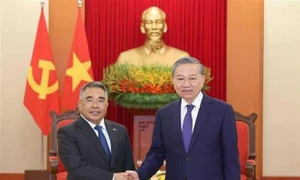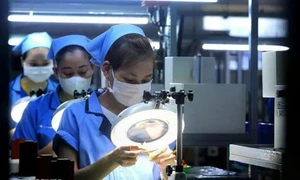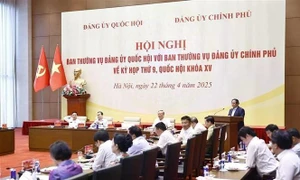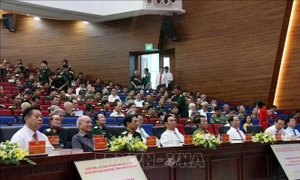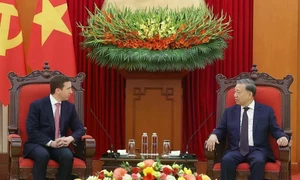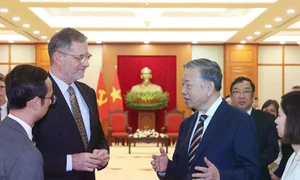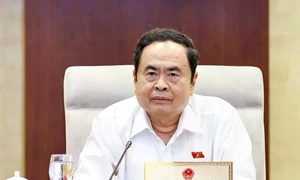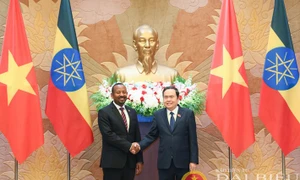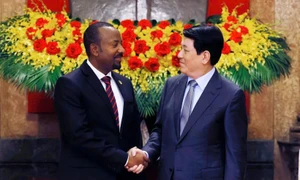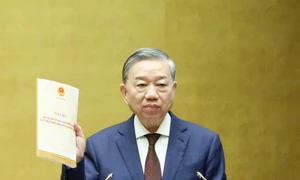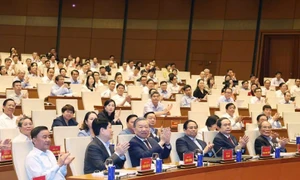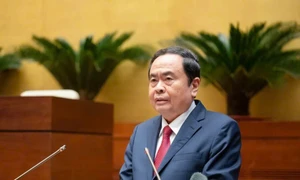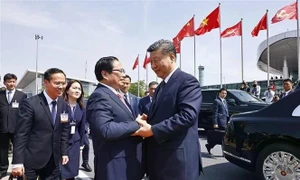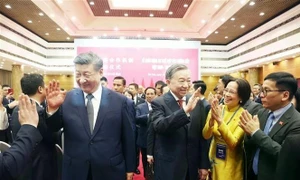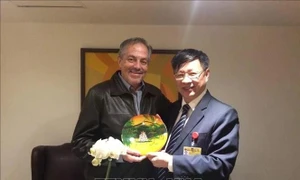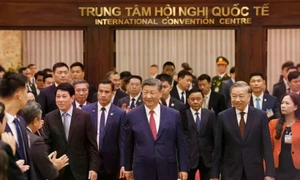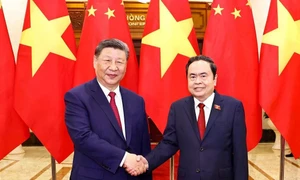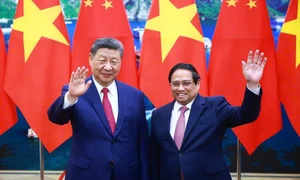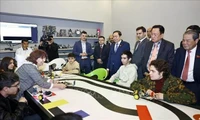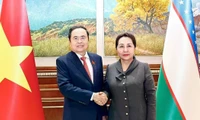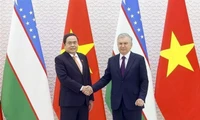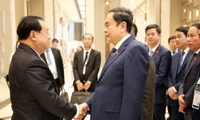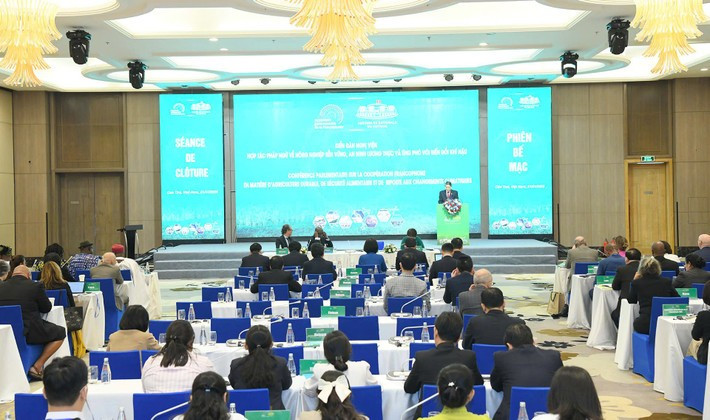
Strengthening cooperation for sustainable agriculture and global food security
Speaking at the session on Francophonie cooperation in the field of sustainable agriculture, Minister of Agriculture and Rural Development Le Minh Hoan expressed his hope that the initiatives from the forum will contribute to addressing urgent issues such as food security and the development of green agriculture.
Hoan emphasised that agriculture is a key sector for many member countries of the Parliamentary Assembly of the Francophonie (APF), particularly in Africa, Southeast Asia, and the Caribbean. He noted that South-South and trilateral cooperation mechanisms are effective ways to share experiences and resources, helping to reduce the development gap between countries within the bloc.
Citing the example of how Vietnam's rice farming techniques helped revive rice cultivation in the Camargue region of France and helped the area avoid a famine over 70 years ago, the minister shared that today, thousands of Vietnamese agricultural experts continue to work closely with African countries, guiding techniques for rice and maize cultivation as well as fish farming.
The official highlighted the role of advanced farming technologies and sustainable resource management practices, proposing countries work together and take practical actions to address global challenges such as climate change and food insecurity.
With its potential and experience of a dynamic developing country in the field of agriculture, Vietnam is ready to join other countries in the community to build a sustainable agriculture system that is resilient to climate change, he affirmed.
Participants agreed that cooperation and the sharing of experiences in agriculture will create a united and strong Francophone community. Promoting multilateral, bilateral, and international cooperation mechanisms this year not only helps connect agricultural trade but also encourages sustainable and responsible investment. To achieve this, member countries need to intensify collaboration with international organisations, the private sector, and development partners to build projects supporting sustainable agriculture, ensuring food security, and responding to climate change, they suggested.
They called on international organisations and developed countries to provide additional financial resources to promote technology transfer, enhance capacity building, and transform agricultural systems towards sustainability. These initiatives include supporting research and development, innovation, digital transformation, and empowering farmers by equipping them with the knowledge, skills, and appropriate technologies.
Promoting food security in vulnerable regions
In the discussion session on the Francophone community and the issue of food security, delegates affirmed the important role of the community in promoting food security, especially in developing countries and regions vulnerable to climate change, conflicts, or economic crises.
According to the Ministry of Agriculture and Rural Development, Vietnam is currently self-sufficient in food for 100 million people and exports agricultural products to more than 180 countries and territories. In 2024 alone, agricultural export turnover reached 62.5 billion USD, with a trade surplus of 17.9 billion USD. The ministry is also developing a South-South and trilateral cooperation project in agriculture, as directed by the Government, to strengthen collaboration with African countries, share experiences, and provide technical support in agricultural production.
Vice Chairman of the Can Tho city People's Committee Nguyen Ngoc He emphasised that the Mekong Delta, the country’s main agricultural production area, is facing many challenges from climate change, increasingly stringent consumption demands, and the trend of reducing agricultural land and labour due to industrialisation and urbanisation. Although this region contributes 50% of the rice output, 95% of rice exports, 65% of aquaculture production, and 70% of fruit production of the country, investment in agriculture still does not meet the requirements for rapid and sustainable development.
Participants proposed strengthening South-South cooperation within the Francophone community, and promoting the sharing of agricultural experiences and solutions tailored to local contexts. They also emphasised the need to advocate for fair and sustainable food security policies at international forums, affirming that access to food is a basic human right.
Sharing knowledge and transferring technology to address climate change
In the final session on January 21, delegates highlighted the role of parliaments and governments in improving legal frameworks to respond to climate change.
According to Nguyen Tuan Anh, Vice Chairman of the National Assembly’s Committee on Science, Technology, and Environment, in order to institutionalise the Party’s guidelines on climate change response, the National Assembly and the Government have focused on building and perfecting the legal system and monitoring the implementation of policies and laws, and issuing strategies, resolutions, plans, and action plans related to climate change adaptation.
Vietnam is also a party to 18 international treaties and agreements aimed at enhancing adaptation capacity and mitigating the negative impacts of climate change, added Anh.
Stressing that not only climate change but also human activities are exacerbating environmental issues, delegates highlighted the importance of strengthening communication efforts to raise public awareness about environmental protection, while also establishing a knowledge-sharing network within the Francophone community to transfer advanced technologies, initiatives, and experiences.
Additionally, enhancing the training of high-quality human resources and building sustainable financial mechanisms are key factors for effectively implementing response solutions, they said, suggesting the establishment of a specialised forum within the community, where experts and policymakers can discuss specific strategies. This forum will contribute to maximising international financial resources, encouraging private investment, and improving mechanisms for accessing bilateral and multilateral financial support funds./.
